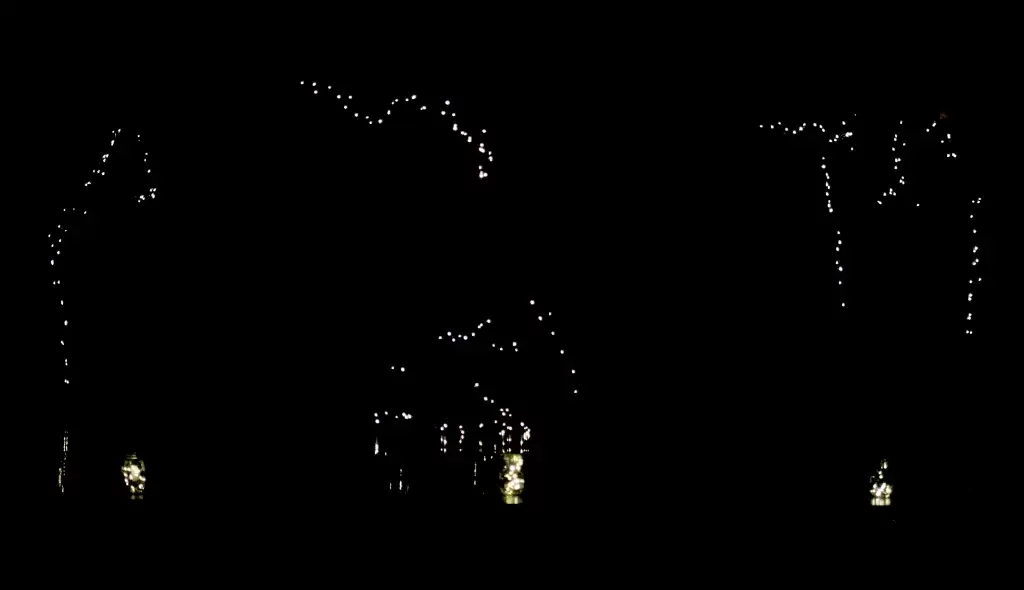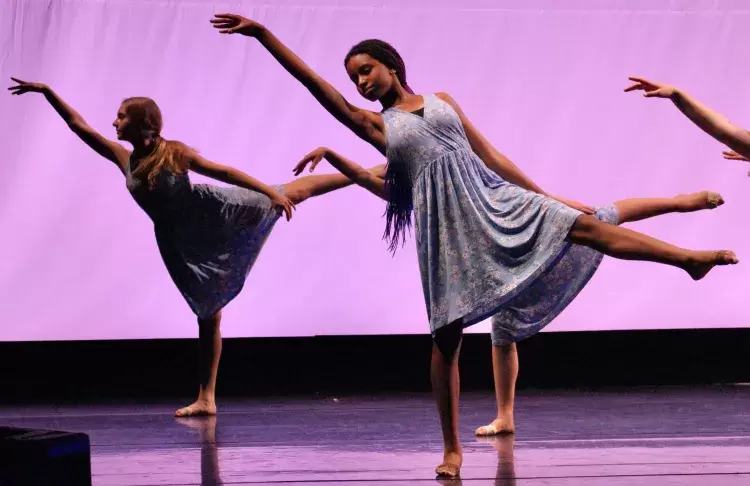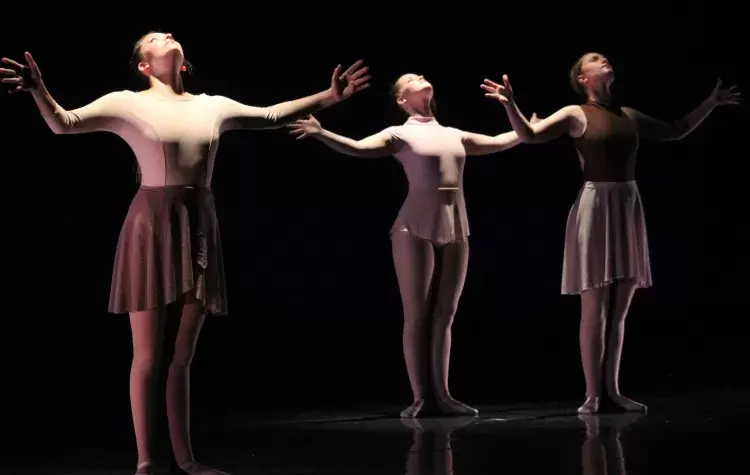We offer many different styles of dance.
Contemporary Dance and Fitness Studio offers a wide selection of dance styles. Our teachers create a warm, inviting, and safe atmosphere in their classes. We strive to be inclusive, supportive, and honest. The teachers recognize that each dancer is on their journey with individual goals. Dance, while it can be demanding, should create JOY more than anything else.
We base class placement on various factors: focus, strength, learning ability, motivation, performance, overall skill level, and age. We design our classes for kids, young dancers, and teens to allow students a minimum of two years at each level. For new students, we ask that you contact the Studio before registering so that we can assist you in class selections.
We base class placement on various factors: focus, strength, learning ability, motivation, performance, overall skill level, and age. We design our classes for kids, young dancers, and teens to allow students a minimum of two years at each level. For new students, we ask that you contact the Studio before registering so that we can assist you in class selections.
ballet
Teachers: Isadora Snapp and Erin Tavani
Junior Faculty: Ayla Dugan, ChiChi MacVicar-Ceckler, Amanda Supan and Georgia Tanner
Junior Faculty: Ayla Dugan, ChiChi MacVicar-Ceckler, Amanda Supan and Georgia Tanner
Ballet originated during the Italian Renaissance in the fifteenth century. It later developed into a concert dance form in France and Russia. Today, there are three main styles of Ballet: Classical, Neo-classical, and Contemporary. Classical Ballet is the oldest and most formal of the ballet styles. It follows traditional techniques used when ballet first began hundreds of years ago. There are variations in Classical Ballet relating to the area of origin and nationality, such as Russian, French, or Italian Ballet.
Neo-classical Ballet, introduced in the 20th century by choreographer George Balanchine, uses traditional vocabulary but is far less rigid than classical ballet. Dancers often move quicker, use tempos authentic to the composer's intentions, and perform steps that require more technique.
Contemporary Ballet, a style that is constantly evolving in the ballet world, is a fusion of Classical Ballet and Modern Dance. It retains the technique and use of pointe work from Classical Ballet, but allows for a wider range of movement and more relaxed steps, influenced by the innovations of 20th-century modern dance.
At CD&FS, we embrace a NeoClassical form of ballet, influenced by Russian and Balanchine techniques. We believe that ballet is not a rigid art form reserved for the elite, but a beautiful and accessible art form for students of all ages and levels. Our passion is to make ballet enjoyable and inclusive for everyone.
Neo-classical Ballet, introduced in the 20th century by choreographer George Balanchine, uses traditional vocabulary but is far less rigid than classical ballet. Dancers often move quicker, use tempos authentic to the composer's intentions, and perform steps that require more technique.
Contemporary Ballet, a style that is constantly evolving in the ballet world, is a fusion of Classical Ballet and Modern Dance. It retains the technique and use of pointe work from Classical Ballet, but allows for a wider range of movement and more relaxed steps, influenced by the innovations of 20th-century modern dance.
At CD&FS, we embrace a NeoClassical form of ballet, influenced by Russian and Balanchine techniques. We believe that ballet is not a rigid art form reserved for the elite, but a beautiful and accessible art form for students of all ages and levels. Our passion is to make ballet enjoyable and inclusive for everyone.
breaking
Teacher: Calvin Walker
Jr Faculty: Josephine Mikus
Jr Faculty: Josephine Mikus
Breakdance is considered one of the four pillars of hip-hop, along with graffiti art, DJing, and rapping. Also known as breaking or b-boying/b-girling, it is a dynamic and improvisational dance form born out of the burgeoning hip-hop culture in the early 1970s in the South Bronx, New York City. The key elements of breakdance are toprock, downrock, power moves, freezes, and battles. Breakdance remains a vibrant and influential part of hip-hop culture, celebrated for its creativity, athleticism, and community spirit.
contemporary
Teacher: Melissa Hall
Contemporary dance is an expressive dance style combining elements of several dance genres, including modern, jazz, lyrical, and classical ballet. Contemporary dancers strive to connect the mind and the body through fluid dance movements. The term "contemporary" is somewhat misleading: it describes a genre that developed during the mid-20th century. It is continually evolving, with each choreographer having a distinctive movement style. Contemporary is one of the most popular dance forms in the US today.
hip hop
Teachers: AnnaMaria DiPietropaolo, Millie Heckler, and Rosemary Leach
Junior Faculty: Bea Curtin and Stella Meyer
Junior Faculty: Bea Curtin and Stella Meyer
At CD&FS the genre of HipHop includes street and club styles influenced by hip hop culture. These styles include but are not limited to old school, house, locking, popping, vogueing, litefeet, dancehall, boogaloo, lofting, and King Tut. In class, we'll start by learning/reviewing foundational grooves, then explore and develop our own personal styles through improvisation/freestyle and cyphers, trying on different styles through choreography throughout the year. We'll also learn about the extensive history of Black dance, how we can serve and support the greater community, as well as the one we create in the studio, which includes ourselves. Our community operates under the principles of hip hop - peace, love, unity, and having fun.
jazz
Teachers: Carissa Bellando and Abby Pepin
Junior Faculty: Amanda Supan and Georiga Tanner
Junior Faculty: Amanda Supan and Georiga Tanner
"Jazz" Dance is currently a very broadly used term in the dance world that encompasses a large variety of dance styles. Movement that is being created now that we file under the Jazz Dance umbrella looks completely different from the movement that Jazz dance has evolved from. Rooted in African dance, melded and expanded upon by the enslaved people who became African Americans, and then liberated by those very same African Americans after emancipation, Jazz Dance has a distinct quality of movement. Inclined torsos, sharp angles, steeping with flat feet, body parts moving in isolation... the list goes. As important as the kinetic qualities of Jazz Dance are the social qualities. An exchange between dancer and musician. Community. The ever elusive "cool" factor. Call and response. Verbal encouragement from fellow dancers. These are all qualities that are at the heart of authentic, vernacular Jazz dance.
Through time, changing popular music, and an infusion of other styles into Jazz dance, we now have several styles of Jazz. These styles include, but are not limited to Vernacular Jazz, Theatrical Jazz, Contemporary Jazz, and Commercial Jazz.
Through time, changing popular music, and an infusion of other styles into Jazz dance, we now have several styles of Jazz. These styles include, but are not limited to Vernacular Jazz, Theatrical Jazz, Contemporary Jazz, and Commercial Jazz.
modern
Teachers: Tracy Martin, Kait Nascimento, Mary Selene, and Isadora Snapp
Modern dance developed in the late 19th century as a challenge to the classical ballet and interpretive dance that was popular at the time. There is not an all-encompassing "Modern Dance technique." Instead, it allows teachers or choreographers to make their own dance language. Pioneers such as Martha Graham, José Limón, and Paul Taylor created barefoot, spine-articulating, athletic, music-based work. They also developed codified techniques that are still taught to this day. Their work led to post-modern creators like Merce Cunningham, Trish Brown, Twyla Tharp, Pina Bausch, and Yvonne Rainer. Post-modern choreographers moved away from dance being directly tied to music and used improvisation, chance, and pedestrian movement.
Currently, Modern dance holds all of this history and continues to evolve. Many people consider work being created now to fall into the genre of Contemporary Dance. More and more choreographers use theatrical elements in their work, choreograph conceptual dances, and make site-specific works. Each evolution stands on the shoulders of those that came before.
Currently, Modern dance holds all of this history and continues to evolve. Many people consider work being created now to fall into the genre of Contemporary Dance. More and more choreographers use theatrical elements in their work, choreograph conceptual dances, and make site-specific works. Each evolution stands on the shoulders of those that came before.
tap
Teacher: Carissa Bellando
Junior Faculty: Madison Atwood
Junior Faculty: Madison Atwood
My favorite Tap teacher said, “You can’t tap a tragedy.” This may not strictly be true, but Tap sure can be fun. Tap is all about rhythm—feeling and creating rhythmic sound through articulation in the ankles and feet. Core strength and agility facilitate constant weight-shifting and, at times, a feeling of suspension, allowing the feet to make sound.
Originating in the U.S., Tap is an amalgam of African and European influences first forged on trans-Atlantic slave-ship decks and later expressed on wooden crates, duplicating drum rhythms outlawed in the Protestant South. Over time, Tap developed as a performance genre and has evolved with the same innovation and genius as all uniquely American dance. Anyone can learn to tap dance. Begin with the basics and build. It is satisfying and fun. If you’ve ever been tempted, now is the time to try.
Originating in the U.S., Tap is an amalgam of African and European influences first forged on trans-Atlantic slave-ship decks and later expressed on wooden crates, duplicating drum rhythms outlawed in the Protestant South. Over time, Tap developed as a performance genre and has evolved with the same innovation and genius as all uniquely American dance. Anyone can learn to tap dance. Begin with the basics and build. It is satisfying and fun. If you’ve ever been tempted, now is the time to try.
yoga
Teachers: Allison Mann and Carissa Bellando
More information to come.
private lessons
Please contact us if you are interested in Private or Small Group Lessons.
your dancer's health and wellbeing
is paramount to us
The physical space that holds CD&FS is a place where respect and safety are placed above everything else.
Every dancer's physical, emotional, and mental health are taken into consideration.
Every dancer's physical, emotional, and mental health are taken into consideration.



